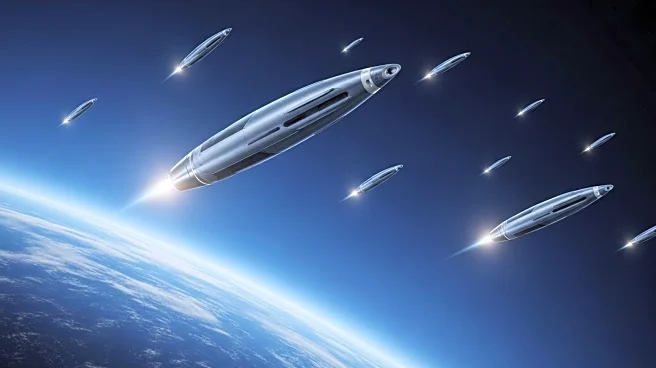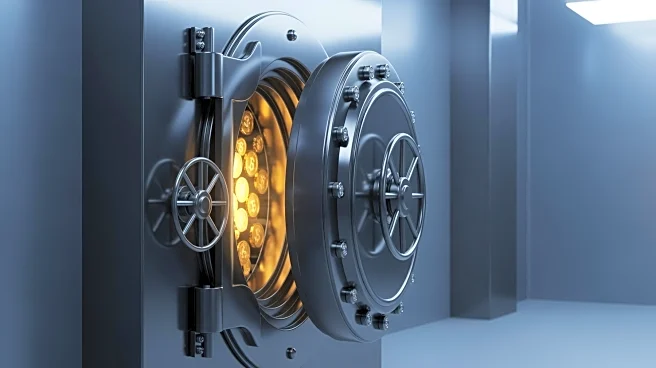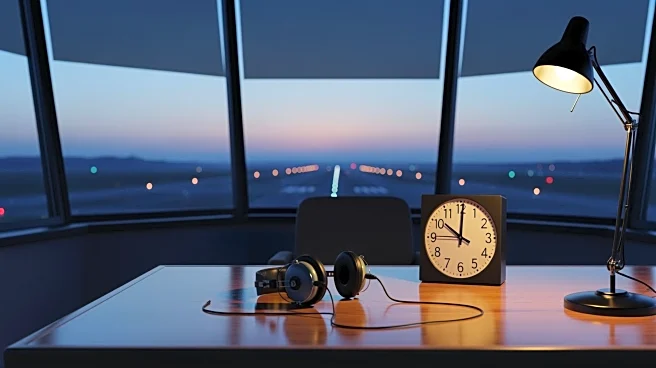What's Happening?
Elon Musk's Starlink satellites are deorbiting at an increased rate, with up to four satellites falling to Earth daily, according to space trackers. Jonathan McDowell, an astronomer at the Harvard-Smithsonian Center for Astrophysics, noted that the average deorbit rate is currently between one to two satellites per day, expected to rise to five as SpaceX expands its constellation. Despite the alarming visuals of satellites streaking across the sky, they are designed to burn up completely in the atmosphere, posing no direct threat to people on the ground. However, concerns have been raised about the potential atmospheric impact of pollutants released during these burn-ups, such as aluminum-oxide particles.
Why It's Important?
The increased rate of Starlink satellites deorbiting could have broader implications for atmospheric conditions. While the satellites themselves are not dangerous upon reentry, the pollutants they release could contribute to atmospheric warming. This raises questions about the environmental sustainability of large satellite constellations. As SpaceX continues to grow its network, understanding the long-term impact on the Earth's atmosphere becomes crucial. The findings could influence future policies and disposal strategies for satellite operators, potentially affecting the space industry and environmental regulations.
What's Next?
Research is currently underway to assess the impact of satellite deorbiting on the Earth's atmosphere. If studies reveal significant atmospheric damage, it may necessitate a reevaluation of disposal strategies for satellite operators. This could lead to stricter regulations and innovative solutions to mitigate environmental impact. Stakeholders, including environmental groups and space agencies, may push for more sustainable practices in satellite deployment and deorbiting processes.
Beyond the Headlines
The situation highlights the ethical considerations of expanding satellite networks without fully understanding their environmental impact. As the space industry grows, balancing technological advancement with ecological responsibility becomes increasingly important. The findings could prompt a broader discussion on the sustainability of space exploration and the need for international cooperation in managing space debris.









